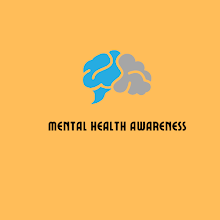Neuroanatomy Of Will Power | The Psychology Behind The Self Control
%20(1).png)
An internal struggle results in a willpower response. You know you shouldn't do something, like smoke a cigarette or eat a big meal, yet you still want to do it. Or perhaps you should be doing something, like going to the gym or doing your taxes, but you'd rather not. Many individuals think that if they just had more of that enigmatic quality known as willpower, their lives would be better. If we all exercised more self-control, we would all be able to save for retirement, quit delaying, eat healthily, and exercise consistently. Consider the findings of the American Psychological Association's annual Stress in America Survey as an illustration. The study inquires, among other things, about respondents' capacity to adopt a healthy lifestyle. Lack of willpower is frequently cited by survey respondents as the main barrier to making such changes. On the other hand, many poll respondents stated that they would be able to overcome their lack of willpower if they had more time to themselves. However, willpower doesn't necessarily increase when you have more free time.
"The secret to success is willpower. People that are successful strive against their feelings by using their willpower to get over indifference, uncertainty, or fear."
"The ability to delay gratification, resisting short-term temptations in order to meet long-term goals."
"The capacity to override an unwanted thought, feeling, or impulse ability to employ a “cool” cognitive system of behavior rather than a “hot” emotional system."
"Conscious, effortful regulation of the self by the self limited resource capable of being depleted."
Why Will Power Is Important? | Importance Of Will Power:
The Neuroanatomy Of Will Power:
Our brain's prefrontal cortex (PFC), which is located just below our forehead and eyes, is in charge of abstract cognition, thought analysis, and behavior regulation. You are relying on your PFC when you contemplate or consider opposing ideas, forecast the results of your decisions, and make "right vs wrong" judgments. It is indicated in red in the illustration to the right. The PFC regulates our focus on attention, personality expression, thoughts, and feelings. In other words, it has a significant impact on "who we are." The PFC grew larger during the course of human evolution, which suggests that natural selection favored the PFC's continuing expansion and development.
The PFC has grown six times larger than the rest of the brain, which has only roughly tripled in size over the past five million years. This makes sense since humans developed to manage our behavior based on what is required for positive group interactions as social animals. According to studies, this area of the brain is the last to grow and is not fully developed until about the age of 25. This is probably why generally thoughtful and clever teenagers continue to participate in risky or excessive behaviors while being aware of the possible negative effects.
People With Greater Will Power Are?
- Happier.
- Healthier.
- More content in their romantic relationships.
- Greater financial success and professional advancement.
- More capable of controlling stress, handling conflict, and overcoming difficulties.
Tips To Increase Your Will Power?
.jpg)
Become more Self-Aware:
Meditation:
If Anyone wants to improve willpower try this 5-minute meditation.
- Allow yourself to settle down for a short while so you can remain still when you are sitting comfortably with your spine straight.
- Take note of any inclinations to move, itch, adjust, or fidget.
- Try feeling the sensations rather than reacting to them.
- Draw focus on your breathing.
- Just mentally tell yourself to "inhale" as you take a breath and to "exhale" as you take a breath out.
- If your mind starts to go, which it inevitably will, simply gently bring it back to your breathing.
- If your thoughts stray, don't be hard on yourself; just gently bring them back to your breath.
Exercise:
Food:
Relax:
One of our body's natural indications of stress and relaxation is heart rate variability. It is the fluctuation in pulse interval across time. There are some differences in everyone's hearts. A typical healthy person's heart will experience typical ups and downs. The sympathetic nervous system takes over while you're under stress. The "fight or flight system" is a term that refers to this portion of your neural system. Your body can react swiftly to dangers or stress thanks to it. When this occurs, your heart rate increases but the variability decreases, causing it to become stuck at a higher rate and causing you to physically feel angry and anxious. The parasympathetic nervous system is in command while you're calm and relaxed.
The "rest and digest system" is a common name for this other portion of your nervous system. As a result of the longer intervals between heartbeats, your heart rate will be lower and more variable. You're more likely to effectively handle stress, fend off impulsive behavior, exercise self-control, and feel focused and peaceful while you're in this relaxed condition. If their heart rate variability is high, indicating they are in a relaxed condition with longer heartbeat pauses, recovering alcoholics are more likely to stay sober when they see a drink.
Motivate Yourself to Follow through On Your Plan:
To make things even simpler, research that was just published in the Journal of Personality and Social Psychology suggests that self-affirmation may even assist you in maintaining better self-control while you're under pressure. The distinction between telling oneself "I can't" and "I don't" is an excellent illustration of this. It has been proven that regaining control of the situation by saying, "I don't," will make it easier for you to stick to your goal and stop harmful behaviors. You start an internal feedback loop that serves as a constant reminder of your limitations each time you tell yourself, "I can't. By using this word, you're telling yourself that you're pushing yourself to accomplish something.

Proper Sleep:
Things that weaken the Will Power:
- Stress.
- Temptation.
- Self Criticism.

%20(1).png)



0 Comments